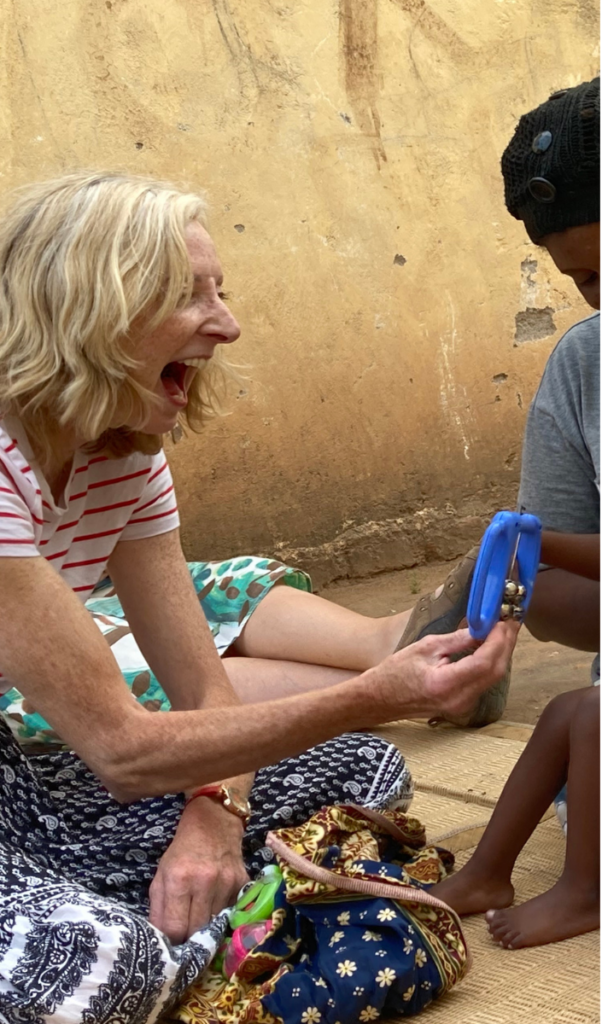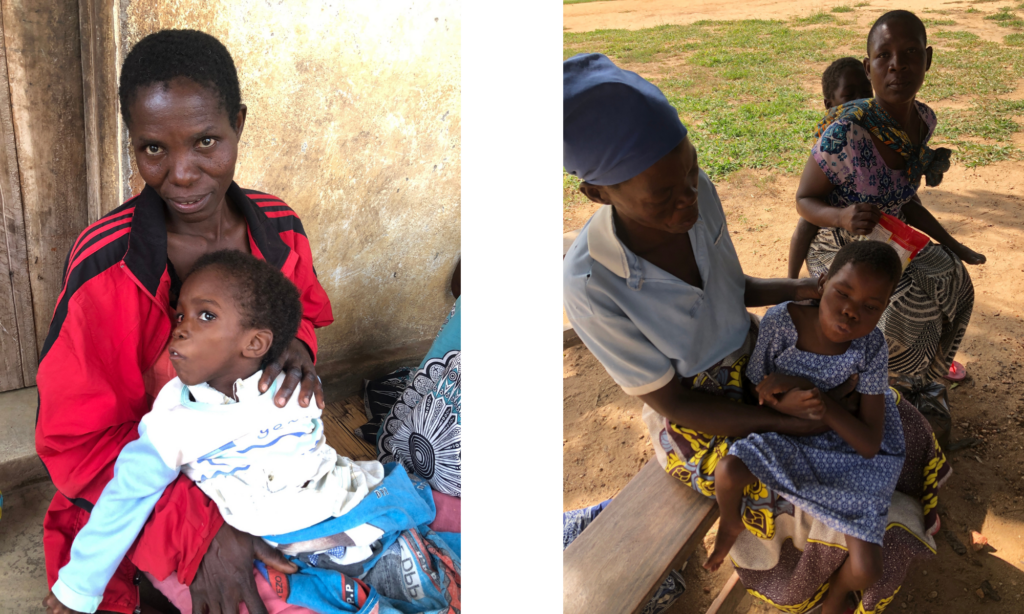As someone who trained for physiotherapy in the UK 40 years ago, I’ve often wondered if I could make a meaningful contribution by doing some volunteer physio work in a low resourced country. And as I now come towards the end of my career, I was keen to find out and prepared to take a bit of a risk.
Well, if nothing else I can be an extra pair of trained hands
Thanks to my friendship with another physiotherapist who I trained with all those years ago, I had the chance to do just that. My friend Jo has worked in Africa for the past 38 years, starting off in Nigeria, then Mozambique, and now – along with her husband Steven – in Malawi. She assured me that as a neurological specialist, particularly with my years of experience with stroke and cerebral palsy, I could be useful working with her in rural Malawi. I wasn’t so certain, but I thought “well, if nothing else I can be an extra pair of trained hands”.
So I have just returned from living and working in Malawi for a month: a big adventure, very exciting and also very rewarding. Thanks to the work Jo is doing there, and her connections within the country, she booked us an action-packed itinerary of clinics, both local to where she lives in Salima, which is in the middle part of the country, and also travelling to some clinics further afield, particularly down in the southern regions. The majority of the population are subsistence farmers, living in small villages (just collections of small dwellings); fortunately, clean water is readily available from local water pumps. However, there is a large incidence of HIV/Aids, and also of malaria, tuberculosis and malnutrition.
I was relieved to find that the hands-on techniques which are the bedrock of neurological physiotherapy transfer easily into another culture
Living in such a different environment was certainly a culture shock, but a very enjoyable one. The logistics of everyday activities such as shopping for and preparing food have to be planned in a way we just don’t need to do in England, and travelling to other areas of the country necessitates long drives. Jo and I shared the driving, and I became used to a different driving style; to be honest, I enjoyed swerving to avoid horrendous pot-holes, herds of cattle and especially kamikaze goats much more than negotiating traffic on boring, crowded English roads. Throughout the country there were frequent power-outages, which meant that at times we were unable to have a shower, and I was certainly pleased that I had taken a small, powerful torch with me. Oh, and the little Kindle e-reader which I bought specially for the trip was much-needed.
 The work was fascinating, and the impact made is great, as the patients have had no previous rehabilitation. The various clinics were largely for children, the majority suffering from cerebral palsy, but also a number who had brain damage following cerebral malaria as infants. I was relieved to find that the hands-on techniques which are the bedrock of neurological physiotherapy transfer easily into another culture, and while I certainly benefited from Jo’s ability to speak the local language (Chichewa), I was also able to work independently with the mothers learning from watching and copying; sometimes communicating solely through handling and interacting with the child had, I felt, a greater influence on the mother than verbal explanations.
The work was fascinating, and the impact made is great, as the patients have had no previous rehabilitation. The various clinics were largely for children, the majority suffering from cerebral palsy, but also a number who had brain damage following cerebral malaria as infants. I was relieved to find that the hands-on techniques which are the bedrock of neurological physiotherapy transfer easily into another culture, and while I certainly benefited from Jo’s ability to speak the local language (Chichewa), I was also able to work independently with the mothers learning from watching and copying; sometimes communicating solely through handling and interacting with the child had, I felt, a greater influence on the mother than verbal explanations.
There were different challenges when working with adults (with injuries or stroke), seeing them in their homes. As with the children, our treatments were done on reed mats placed on the floor, and all exercises had to be functional, and without use of any kit.
A perfect example of the versatility of a physio working in sub-saharan Africa occurred towards the end of my visit. Outside a clinic we came across a young teenage boy sitting on the floor; his mother told Jo that he has had repeated infections in his leg (multiple scars were visible) for the past few years, and now he has severe pain in his femur, is completely unable to weight-bear, and has received a prescription for yet-more antibiotics. Jo swiftly diagnosed osteomyelitis, then made phone calls to arrange for him to be seen by a surgeon at a hospital in Blantyre (a full day’s travel away) – she knew he would need necrotic bone tissue excising. Then she arranged for the mother and boy to get to the hospital, as the family, like their neighbours, have no surplus money to pay for travel.
The opportunity to work for a few weeks in this community was a wonderful and rewarding experience
My trip wasn’t all work, and we visited game parks and the lake. I was seduced by the beauty of Malawi: it is a country of huge variety of landscape, from rolling hills & mountains, plateaus, deep valleys, forests and grasslands, and of course the huge Lake Malawi. I was expecting arid, desert-like landscapes, whereas it is a green and lush land. It is known as the Warm Heart of Africa, thanks to the friendliness of its people, and the opportunity to work for a few weeks in this community was a wonderful and rewarding experience.
As a low income country, all residents of Malawi can get free access to Plus continuing education and professional development. If you are based in Malawi please contact us for a discount code for free access. Plus also offers free partnerships with clinic, university and member organisations in low- and low-middle-income countries as part of our ReLAB-HS activities, please contact us here to apply.
